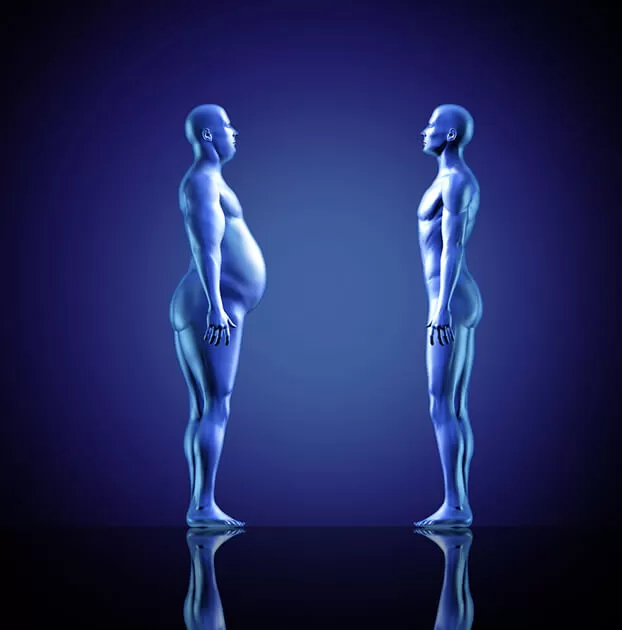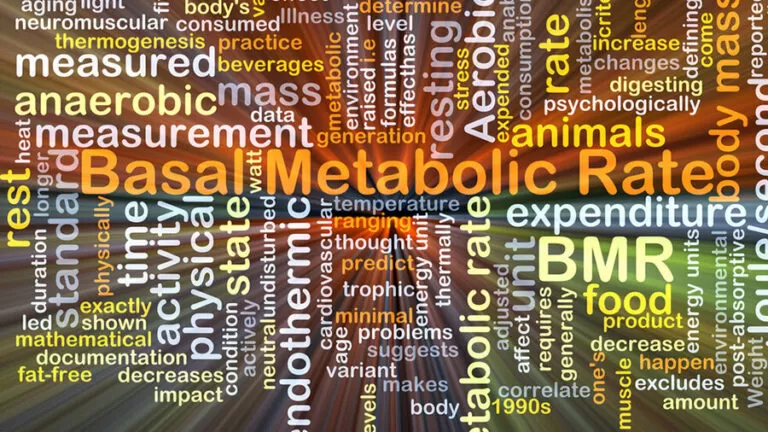The basal metabolic index is one of the many parameters in nutrition and though it only comprises 4-5% of the full picture, it disproportionately determines 70-80% of your results. These are lean gains, fat loss, satiety, etc. More specifically, the B.M.I. It is a measurement of your net caloric expenditure at rest.
What is the Basal Metabolic Index?
Metabolism, the process by which the body converts food into energy, is a chemical reaction. The basal metabolic index (BMR) measures how many calories your body burns at rest.
According to Healthline, “You burn some amount of calories each day simply by existing. Your BMR accounts for about 60 – 70 % of the calories you burn each day.”
How to calculate your BMI
To find your BMI, convert your weight into pounds & your height into inches
If you are a female: 655 + (4.35 x your weight in pounds) + (4.7 x your height in inches) – (4.7 x your age in years) = your BMR
If you are a male: 66 + (6.23 x your weight in pounds) + (12.7 x your height in inches) – (6.8 x your age in years) = your BMR
Here’s what the results of your BMI calculation might mean:
Under 18.5: You’re considered underweight and possibly malnourished. You may want to talk with your doctor about ways to safely gain weight.
18.5–24.9: Your weight is considered normal for your height. Keep up the good work! Remember that even if you’re at a healthy weight, you should still eat a healthy diet and get plenty of exercises.
25–29.9: You’re considered overweight and may be at greater risk for certain diseases such as diabetes or high blood pressure than people who have lower BMIs. Losing even 10 pounds can help

The Benefits of using BMI as a guide
The Benefits of using your BMI as a guide:
-1. Knowing how many calories you need to maintain your current weight can be useful when trying to lose weight. Your basal metabolic index can help you determine the number of calories that you need each day, and it can also help you determine what type of diet will be best for you.
– 2. If you are trying to eat healthier, then using your BMI can help you figure out what types of food are going to be good for you. For example, if you are trying to lose weight, then you may want to avoid foods that are high in fat and sugar. But if you want to eat more protein and vegetables, then a diet rich in those foods will be better for you.
– 3. Your metabolism is what helps your body burn calories and turn them into energy for your daily activities. So it’s very important that your metabolism stays healthy so that it doesn’t
The Basal Metabolic Index is one of the most common ways to get an idea of how much energy you burn each day. It’s easy to calculate and can help you determine how many calories you need to eat each day.





[…] your cells from damage. It’s truly powerful stuff! If you want to increase or maintain your metabolic rate, try adding some raw veggies like broccoli into your salads every day. […]
[…] Mechanism 2: Boosts metabolism […]
[…] basal metabolic rate—which determines how quickly your body burns calories—is largely determined by genetics. Some […]
[…] According to research, the body’s ability to absorb vitamin D directly correlates with body mass index.These individuals reportedly have a lower capacity for converting vitamin D into its active […]
[…] Techniques Increase brain oxygenation, metabolism, and digestion for better digestion and more energy throughout the day. Learn about the advantages […]